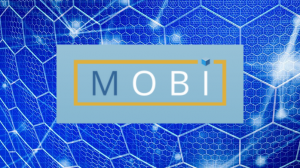

“A blockchain identity standard could enable a diverse suite of mobility applications that result in more efficient supply-chains, lower-cost financing, and safer roads,” said Chris Ballinger, MOBI’s Founder and CEO. “We hope these standards will ultimately make urban environments greener, safer, and more livable by enabling usage-based payment for congestion, pollution, and infrastructure.”
The VID raison d’ être
In order to establish a vehicle’s existence, this first standard focuses on the ‘birth’ of the vehicle – as a minimum representation of that vehicle’s creation. Subsequent VID phases will add:
- additional product definition
- ownership history
- a log of key-events in each vehicle’s lifecycle.
The result will be a trusted, immutable master record of every vehicle’s history and data usage. This means buyers will have, at some point in the future, deeper and more reliable information about any vehicle they might wish to buy.
In addition to the work of the working group, the initial VID standard has received a thorough review from formal verification experts. This should provide developers with the confidence that implementations adhere to the best practices in digital security.
“A standard for Digital Vehicle Identity will be the cornerstone of a new realm of blockchain-based solutions for the mobility ecosystem,” explained Sebastien Henot, Chair of the VID Working Group, and Renault’s Silicon Valley Innovation Lab Manager of Business Innovation. “The creation of a blockchain ‘digital twin’ will enable connected vehicles to securely identify themselves, share data, and transact with other vehicles, infrastructure, and their environment.”
The evolution of MOBI’s VID standard

Created by a group of global automotive leaders, start-ups, and large technology companies, this first VID standard emerged as the initial step toward the digital evolution of the automotive and mobility industries. MOBI’s VID Working Group has chairs from Groupe Renault and Ford, with support from Accenture, AIOI Insurance, BMW, Car Vertical, Cerebri AI, Cognizant, ConsenSys, CPChain, Dealer Market Exchange, DLT Labs, GM, Honda, Hyperledger, IBM, IOTA, Kar Auction Services, Luxoft, MintBit, Netsol Tech, Oaken Innovations, On The Road Lending, Trusted IoT Alliance and Xapix.
The first standard intends to become the foundation which enables trusted data communication amongst inter-operating stakeholders within (what MOBI calls) the ‘mobility ecosystem’. By supporting data transparency, coordination, and automation among stakeholders throughout a vehicle’s lifecycle, the VID becomes the master data key to each vehicle’s:
- existence
- behavior (history)
- performance.
“The real power of blockchain comes from enabling networks of people and things to transact with each other without intermediaries,” Ford’s Alan Gordon, co-chair of MOBI’s VID Working Group states. “A crucial first step to enabling these networks is for participants to be able to identify each other in a way that everyone understands. Providing this identity for vehicles is the goal of the first phase of the VID standard.”
Enterprise Times: what does this mean
MOBI is working with large automakers, smart city initiatives and mobility ecosystem players – as well as many start-ups, non-profits, governments, transit agencies and technology companies. It believes it can make mobility services more efficient, affordable, greener and safer.
To deliver this MOBI acts as an open, inclusive body which tries to be a ‘trusted convener’ and partner to entities in the emerging ecosystem of pay-for-use, on-demand, connected and increasingly autonomous mobility services. MOBI itself, however, regards itself as technology and ledger agnostic.
MOBI hopes that applications enabled by this VID standard will ultimately:
- help lower carbon emissions
- improve road safety
- reduce traffic congestion
- support other socially desirable outcomes.
These are all ‘big’ aspirations. But at the individual level, the significance could be considerable. As someone who has recently gone through the elaborate process of registering a car bought in country A, exported to country B and then reimported to country A, the need to demonstrate the same information over and over would disappear if an internationally recognised VID system existed.

























